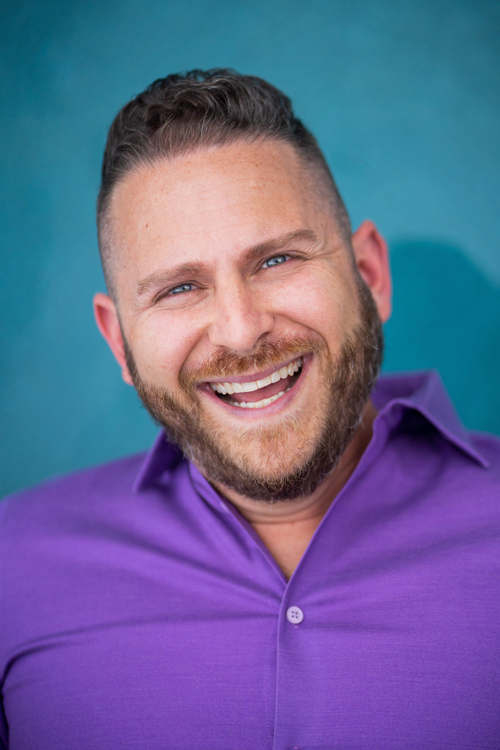
Helping Couples through the Holidays
Mental-health therapist Ty David Lerman shares his family survival tips.

The holidays can be draining, especially for couples who are having a hard time coping with the stress of the season. Thankfully, therapist Ty David Lerman has some advice for couples trying to survive the holiday crunch while attending family gatherings during the pandemic.
Lerman credits his upbringing with his decision to journey into psychology, and specifically into working with the LGBTQ community.
“When I came out to my parents, they said in unison, ‘So what?’ I realized that was unique,” he recalls. “When I settled into psychology as my career path, I really wanted to create that space for other people in the coming-out process, so that they would have a safe place and [be supported by] people who can look past their sexual orientation and see them for who they are.”
Lerman spent a year interning at Legacy, and after earning a master’s degree from University of Houston-Clear Lake he went to work at the Montrose Center for eight years. His early experiences at Legacy and the Montrose Center clarified his desired path in counseling. “I realized, through my service, that I was largely working with gay men or the LGBTQ community at large, and it’s impossible to perform counseling with our community and not talk about sex,” he says.
Now he has his own practice and is licensed as a supervisor for LPC interns who are in pursuit of terminal licensure. He’s also a certified sex therapist and hypnotherapist, and is working on his doctoral degree in clinical sexology with a specialty in LGBTQ and non-traditional relationships therapy. He has also earned three OutSmart Gayest & Greatest awards for Best Male Mental-Health Therapist.
Lerman hopes his doctoral degree will further his ability to support his clientele and equip him with the tools to remain relevant as he deals with the issues facing LGBTQ populations.
“There is a difference between affirming therapy and competent therapy. Affirming therapy says, ‘I see you, I acknowledge who you are, I affirm who you are.’ But that doesn’t mean a therapist has specific training in that area. That is so important as a provider. You’re not just saying, ‘Oh, good job,’ you’re saying, “Have you thought about X, Y, and Z? These are considerations that are common in situations that people like you are going through,” he explains.
“The LGBTQ community is ever-evolving. It’s constantly changing in terms of standards of care, terminology, and identity. If you haven’t been taking classes and continuing your education, then I would say you’re not [keeping up as a] competent therapist [for this population]. That’s why I chose this track, and I do stay on the forefront of the latest standards of care. That sets a competent therapist apart from an affirming therapist.”
Lerman suggests that couples dealing with family pressures during the holidays take four pieces of advice:
Tips for Surviving the Holidays
1. Choose your battles. “We don’t have to [address] every small infraction. There may be times when it’s appropriate to speak up when we need to be seen for who we are and not get mired in lies. But that’s not every single time, especially with family members who may not be accepting or open to discussion.”
2. These are your holidays, too. “You don’t need to sacrifice your own celebration of the holidays for your family’s celebration. If you need time and space, take it. We all have traditions we grew up with in our family, but we get to reinvent ourselves as adults. We may continue family traditions, or we can choose to do our own thing.”
3. Public displays of affection are OK. “Part of not sacrificing yourself is being able to be yourself with your partner, so showing a few moments of affection is acceptable. It could be holding hands, sitting next to each other, leaning into each other, or putting your arm around your partner’s shoulder. Live your life without worrying about other people. If others are not okay with it, that’s on them.”
4. Leave if you need to. “If you ever feel threatened or you can’t be yourself, you have the power to walk away. You don’t have to sit through an incredibly uncomfortable scene. Whether it’s an argument that is escalating or a family environment that doesn’t feel safe, you can choose not to show up or to leave.”
Since the holiday season is when people typically experience more frequent mental-health issues, Lerman urges everyone to seek help if they need it. “If you do experience Seasonal Affective Disorder or struggle with family issues around the holidays, it’s absolutely appropriate to seek out a therapist.”
To learn more about Ty David Lerman Counseling, visit tdlcounseling.com.
This article appears in the November 2020 edition of OutSmart magazine.










